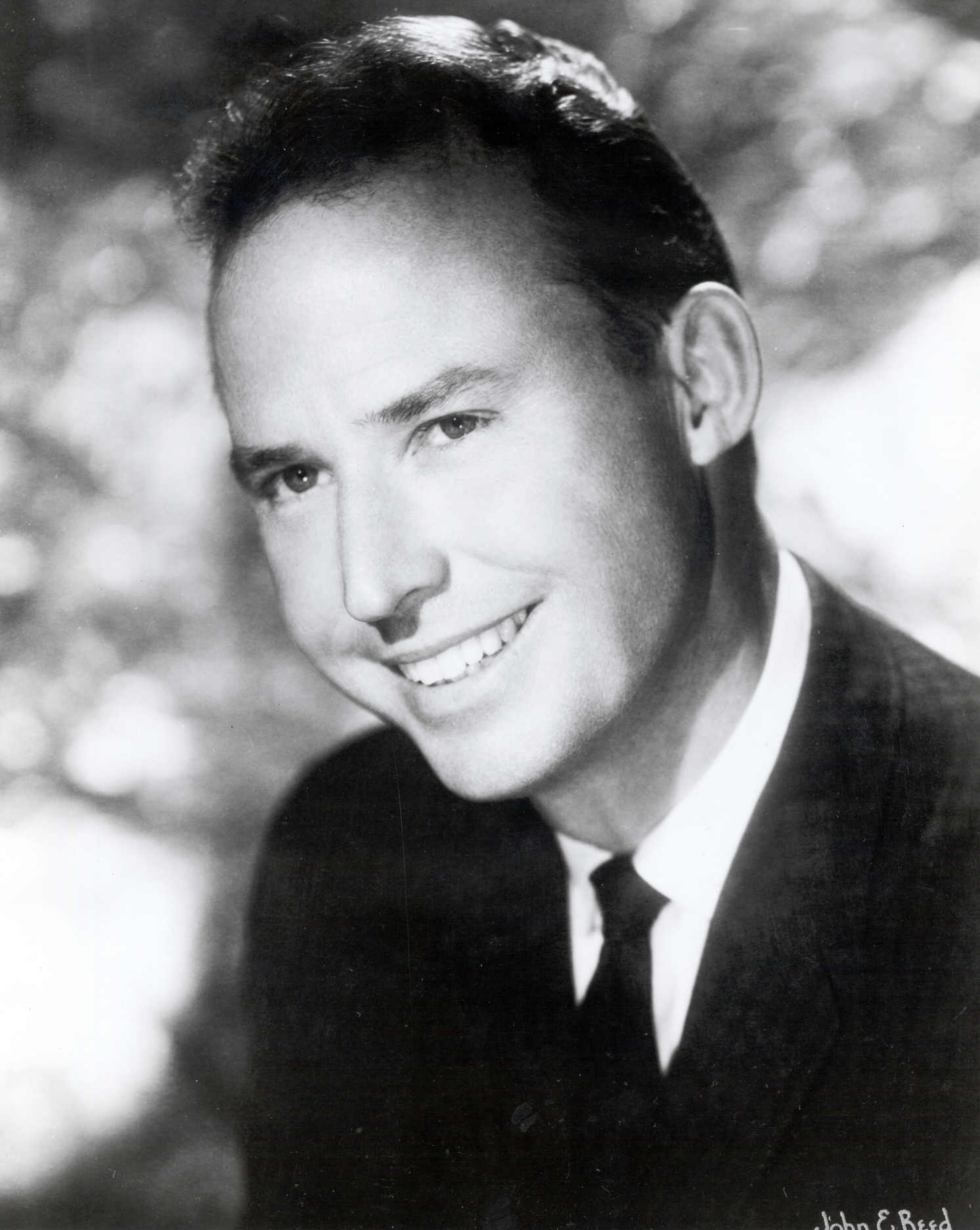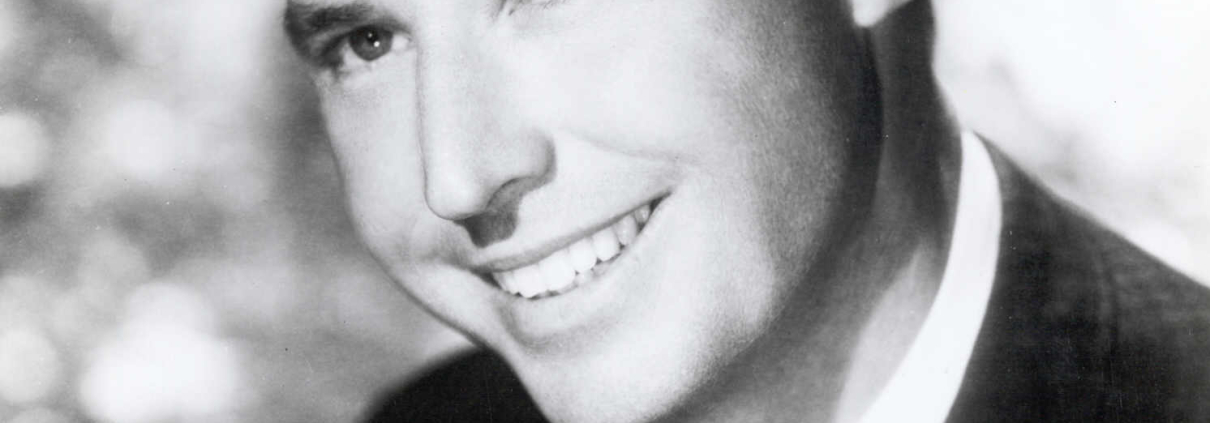Don Wells
 In a 20-year major-league broadcasting career with the Chicago White Sox and Los Angeles/California Angels, plus four additional years of professional and college play-by-play, Don Wells worked alongside famed broadcasters Bob Elson, Dick Enberg, and Dave Niehaus, all of whom would later win the National Baseball Hall of Fame’s Ford C. Frick Award. Although Wells himself never earned such accolades, he had a long career that he could look back on with pride.
In a 20-year major-league broadcasting career with the Chicago White Sox and Los Angeles/California Angels, plus four additional years of professional and college play-by-play, Don Wells worked alongside famed broadcasters Bob Elson, Dick Enberg, and Dave Niehaus, all of whom would later win the National Baseball Hall of Fame’s Ford C. Frick Award. Although Wells himself never earned such accolades, he had a long career that he could look back on with pride.
California native Wells was born in Sacramento and raised in Salinas, where he listened to the San Francisco Seals and Oakland Oaks of the Pacific Coast League on the family’s “aging Kent Radio.”1 After the bombing of Pearl Harbor in December 1941, he worked for the Douglas Aircraft Company in Southern California until he was drafted the following year. He served in World War II as a Corporal in the US Army and attended the Hal Styles School of Radio and Television in Beverly Hills on the GI Bill. Wells recreated play-by-play for a baseball game on an acetate disc for an audition with KSBW (SBW standing for Salad Bowl of the World, a nickname for Salinas due to the large amount of agriculture in the area), where he broadcast Salinas Colts games in the Class C Sunset League in 1949, as well as college and high school football and basketball games in the area. Longtime Salinas native Paul Cahill remembered Wells as a polished broadcaster even at this point in his career. “Wells did a great job of painting the picture when doing the play-by-play. He had a very smooth style which made listening to him a pleasure.”2
While visiting friends in nearby Carmel, Wells met and courted Jacqueline Anich, who was visiting from San Pedro in the Los Angeles area. They would marry in 1950 and soon welcomed a son, Chris.
In 1951, he broadcast for the Wichita (Kansas) Indians of the Class-A Western League for KWBB.
In 1952, Wells joined Gordon McLendon’s Liberty Broadcasting System recreating major league games from tickertape accounts where crowd noise and other ballpark sounds were simulated.
1952 saw the demise of Liberty due to major-league baseball objecting to having its games pirated away from authorized networks. Wells applied for a job with the Chicago White Sox and was selected over future Ford C. Frick Award winner (1992), Milo Hamilton, to work with another futre Frick winner, Bob Elson (1979) beginning in 1953 on WCFL. While there, Wells did play-by-play for Big 10 football and basketball, Southwest and Missouri Valley Conference football, as well as for the NFL Chicago Cardinals. Wells considered Elson to be the “Daddy of them all” when it came to broadcasters.3 During his time in Chicago he hosted a twice daily one-hour radio show (news, spots, music) on the White Sox home radio station.
After Bill Veeck gained controlling interest from the Comiskey family in 1958, he saw Wells as being a Comiskey man. Never having seen eye-to-eye with Veeck, Wells was terminated following the 1960 season.
After considering an offer from the Minnesota Twins (who had just moved to the Twin Cities from Washington), Wells was hired by Gene Autry in to become of the voices of the expansion Los Angeles Angels for the 1961 season. Wells said he was happy to be out of Chicago, admitting to being “shell-shocked” by Veeck’s exploding scoreboard.4
He was teamed with Bob Kelley, long-time voice of the Cleveland and Los Angeles Rams (1937-1966), and Steve Bailey, a radio producer for many years (1951-95), broadcasting on KMPC. In the first inning of the Angels’ opening game Wells called the team’s first home run, a two-run shot by Ted Kluszewski off Orioles starter Milt Pappas with a “Good-bye baseball! Kluszewski hit one!”5 Kelley departed after one year, and Bailey two.
Wells later recounted in 1963, “We were all tense at the beginning. We belonged to a personal club, sort of holding our meetings in a small place [LA’s] (Wrigley Field) downtown. We developed a great favoritism for the Angels. We thought we had to do something to tell the people about this exciting club. So we made it exciting.
“We wanted the Angels to be successful in a hurry and I guess we got pretty tense about it, but tenseness has its rewards. We received criticism and I know I responded to it—although not all of it. My favoritism has never changed. But I’m more relaxed now when I do my job.”6
In the mid-1960s, while living in the LA suburb of Brentwood, Wells broadcast UCLA football and basketball contests.
From 1963-68 Wells was partnered with former major leaguer Buddy Blattner, who had been Dizzy Dean’s partner on the CBS Game of the Week. Although they were considered to be co-lead announcers, many felt Blattner was brought in as the No. 1 announcer, which hurt Wells. Wells hosted warm-up and wrap-up shows around each televised game. Dick Enberg took over as the lead announcer in 1969 and from 1970-72 Dave Niehaus joined the pair. Both Niehaus (2008) and Enberg (2015) were future Frick Award winners.
Niehaus remembered Wells as a “heck of a broadcaster” who never realized his dream. “He never got that No. 1 job that he always wanted. ” 7 Ironically, Wells had been hired by then- General Manager Fred Haney to be the top announcer because he had wanted a bigger baseball name on the announcing crew. However, he ended up sharing the No. 1 spot with Kelley.
Enberg remembered Wells’ advice for broadcasting during the dog days of summer. “Think of it as the Game of the Day. Imagine that you’re broadcasting this game to the entire nation and they don’t care what the records are. You have the privilege of being able to call the Game of the Day. Do the best you can. Make it interesting. Make them happy they tuned in. Game of the Day.”8
Wells’ relationship with Enberg was strained, however. Early on, the inexperienced Enberg wanted to quit after an on the air putdown by Wells. And from the other side, in 1972, after the team plane made an emergency landing in Boston, Enberg jumped from his seat next to Wells and said that if he had to die, he “didn’t want to go while listening to Wells.”9
Wells felt Enberg cost him his job when he was replaced by Don Drysdale. Enberg disagreed and said “there was a lot to like about Don Wells, and I thought he was an outstanding announcer.”10
After 12 seasons with the Angels, Wells hung up his baseball broadcasting mic after the 1972 season and became a sports and general news announcer on LA radio station KFWB until 1988. In retirement, Don and his wife Jacque moved to Switzerland where his son, Chris, had settled. They owned a large chalet in their village surrounded by the Alps. On a side note, Wells missed just the second game in his career in August 1971 in order to attend Chris’ wedding.
Wells died in Switzerland on October 3, 2002, aged 79 after a long illness as the Angels were preparing for Game Three of the American League Division Series against the New York Yankees. Later that month, when the Angels finally won their first World Series championship, it seemed a shame that the celebration could not be enjoyed by the man who announced the team’s first major league homer.
Photo credit
Courtesy of the Los Angeles Angels.
Sources
In addition to the sources cited in the Notes, the author also consulted:
“All-time Owners,” http://chicago.whitesox.mlb.com/cws/history/owners.jsp, retrieved November 20, 2017.
“Angels Broadcasters,” mlb.com, retrieved September 30, 2017.
http://losangeles.angels.mlb.com/ana/history/broadcasters.jsp
“Angels Notebook,” The Sporting News, August 21, 1971.
Barrett, Don, “Where Are They Now? LARadio.com Los Angeles Radio People, B, Bailey, Steve” http://www.laradio.com/whereb.htm, retrieved February 9, 2018.
Barrett, Don, “Where Are They Now? LARadio.com Los Angeles Radio People, K, Kelley, Bob” http://www.laradio.com/wherek.htm, retrieved February 9, 2018.
“Communications, End of Liberty,” Time, June 9, 1952. http://www.angelfire.com/ky2/cumberlandgapbc/index61.html, retrieved February 9, 2018.
“[Day of the week] Radio Programs,” Chicago Tribune, various 1953, 54, 55, 56, 57, 59.
“Don Wells, Anaheim Angels announcer, longtime radio b’caster,” Variety via AP, Oct 7, 2002, retrieved Sep 30, 2017 http://variety.com/2002/scene/people-news/don-wells-1117873949/
“Ford C. Frick Award,” National Baseball Hall of Fame, https://baseballhall.org/awards/ford-c-frick, retrieved October 3, 2017.
Goldsborough, Robert, “Whatever happened?” Chicago Tribune, May 21, 1967: sec 5, p4.
Hilliker, Jim, “Celebrating KFWB’s 90th Anniversary, Lost Radio History from the Warner Brothers Years 1925 to 1950,” 2015, http://jeff560.tripod.com/kfwb.html, retrieved October 2, 2017.
Liptak, Mark, “Flashing Back… … with Milo Hamilton,” White Sox Interactive, Interview from 2005, http://www.whitesoxinteractive.com/rwas/index.php?category=11&id=3133, retrieved October 1, 2017.
“Los Angeles Angels 7, Baltimore Orioles 2,” retrosheet.org, http://www.retrosheet.org/boxesetc/1961/B04110BAL1961.htm retrieved October 2, 2017.
Newhan, Ross. “Wells, Kel, Bailey to Air Angel Tilts,” Independent (Long Beach, California), Feb 14, 1961, p17
“TV Times” Los Angeles Times, various dates, 1964-65.
“Wells To Air Angels’ Tilts,” UPI (from Chicago Daily Defender (Daily Edition), February 14, 1961, 22.
Notes
1 Don Barrett, “Passing Parade of 2002,” http://www.laradio.com/2002passingparade.htm, December 30, 2002, retrieved October 2, 2017.
2 Interview with Paul Cahill, February 10, 2018. Mr. Cahill who resides in Durango, Colorado, was a longtime resident of Salinas and is considered an oracle of Salinas sports knowledge by locals in the area.
3 Ross Newhan, “Voice of Angels Glad to Be Back,” Independent (Long Beach, California), February 27, 1961: 19.
4 Braven Dyer, “Wells Set as Angels’ Broadcaster,” Los Angeles Times, February 16, 1961.
5 Helene Elliott, “Don Wells 1923-2002, He Was One of First Angels as a Broadcaster,” Los Angeles Times, October 5, 2002.
6 Don Page, “Call it Madness; Angel Fans Call It Love.” Los Angeles Times, May 18, 1963, III-3.
7 Ibid.
8 Dick Enberg, with Jim Perry. Dick Enberg: Oh My! (New York: Sports Publishing Books, 2012), 97-98.
9 Stuart Shea, Calling the Game: Baseball Broadcasting from 1920 to the Present (Phoenix: Society for American Baseball Research, 2015, retrieved Oct 1, 2017, 269.
10 Shea, 267.
Full Name
Donald Mortensen Wells
Born
September 29, 1923 at Sacramento, CA (USA)
Died
October 3, 2002 at Bern, Spiez (SUI)
If you can help us improve this player’s biography, contact us.


